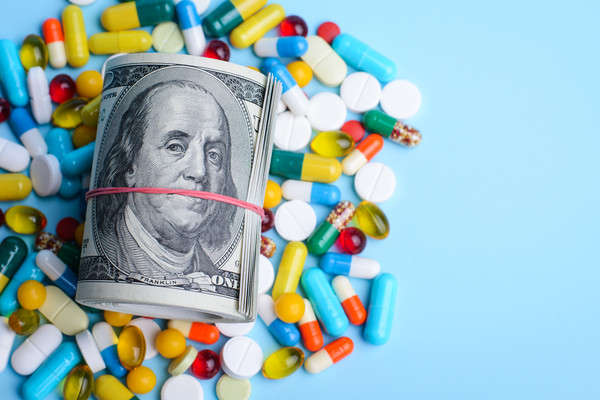The Korean government will consider introducing a “preferential drug pricing system” to support innovative pharmaceutical companies.
Although the system had a legal basis, the government has not introduced it because it posed a trade dispute risk. However, the Ministry of Health and Welfare said it would find ways to introduce it without trade dispute concerns as part of the national strategy to develop key leading industries.

At a meeting to spur the growth of so-called “Big 3” industries – future cars, bio-health, and system semiconductors -- presided over by Deputy Prime Minister Hong Nam-ki on Monday, the health and welfare ministry reported its plan to nurture innovative drugmakers and medical device developers.
The plan aims to grow eight leading companies in the pharmaceutical, medical device, and cosmetic industries by 2030 under three strategies and nine tasks.
Strictly managing innovative companies
The government said it would select innovative companies more strictly to give them bolder support.
The government will divide innovative companies into “start-up” and “scale-up” categories based on the annual sales of 50 billion won ($42.9 million) and support them separately.
The government will maintain the number of innovative companies at 50 in each pharmaceutical, medical device, and cosmetic sector. However, the government will let go of the worst-performing companies in the lower 10 percent and select new companies instead.
The government will also come up with a system by 2022 to evaluate a company’s growth potential and technological value rather than the size, it said.
The health and welfare ministry will support the stable settlement of companies younger than six years with low capital but high technology and listing potential.
To do so, the government will prioritize settling in the Bio-health Innovative Startup Technology and Commercialization Center, to be completed in the Osong High-tech Industrial Complex by 2023, and the K-Bio Lab Hub in Gyeonggi Province to be completed by 2025.
The government will push for a joint research development linking the capital power of an industry leader with the technological capacity of a start-up firm. Companies designated as innovative drugmakers or medical device developers will have up to 15 percent discount in user fees of the Osong-Daegu Medical Innovation Foundation’s infrastructure.
To enhance financial support for innovative companies, the government will set up a plan within this year to utilize a 50 billion won fund for innovative companies with promising technologies.
Aggressive support for overseas expansion of drugmakers
To support pharmaceutical companies’ entry into foreign markets, the government will build an open cooperation system for joint research of drugmakers, universities, research institutes, and exchange of manpower and skills.
Also, the government will spend 4.8 billion won to support joint research with foreign companies or medical institutions and global clinical trials in 2022.
In particular, to help Korean companies enter the U.S. pharmaceutical market, the world’s largest, the government will install a support center in the bio cluster in Boston. Also, the government will establish more support centers in Europe, too.
‘Preferential drug pricing’ for innovative drugmakers
To give practical help to innovative pharmaceutical companies, the government said it would revise the health insurance benefits system.
The government had been preparing a preferential drug pricing system for innovative pharmaceutical companies under the Special Act on the Promotion and Support of the Pharmaceutical Industry. However, the push has been put on hold due to concerns over a possible trade dispute. To make the system suitable for international trade orders, the government will start related research in 2022.
Also, the government will distribute software designated as innovative medical devices to medical institutions, verify them, accumulate usage data, and use the data as a basis for compensation for the technological value.
The government said it would help strengthen collaboration between graduate schools specializing in drugs and medical devices to attract talents and spend 1 billion won to establish a “pharmaceutical industry future manpower nurturing center” to provide GMP-based training for pharmacy students.

